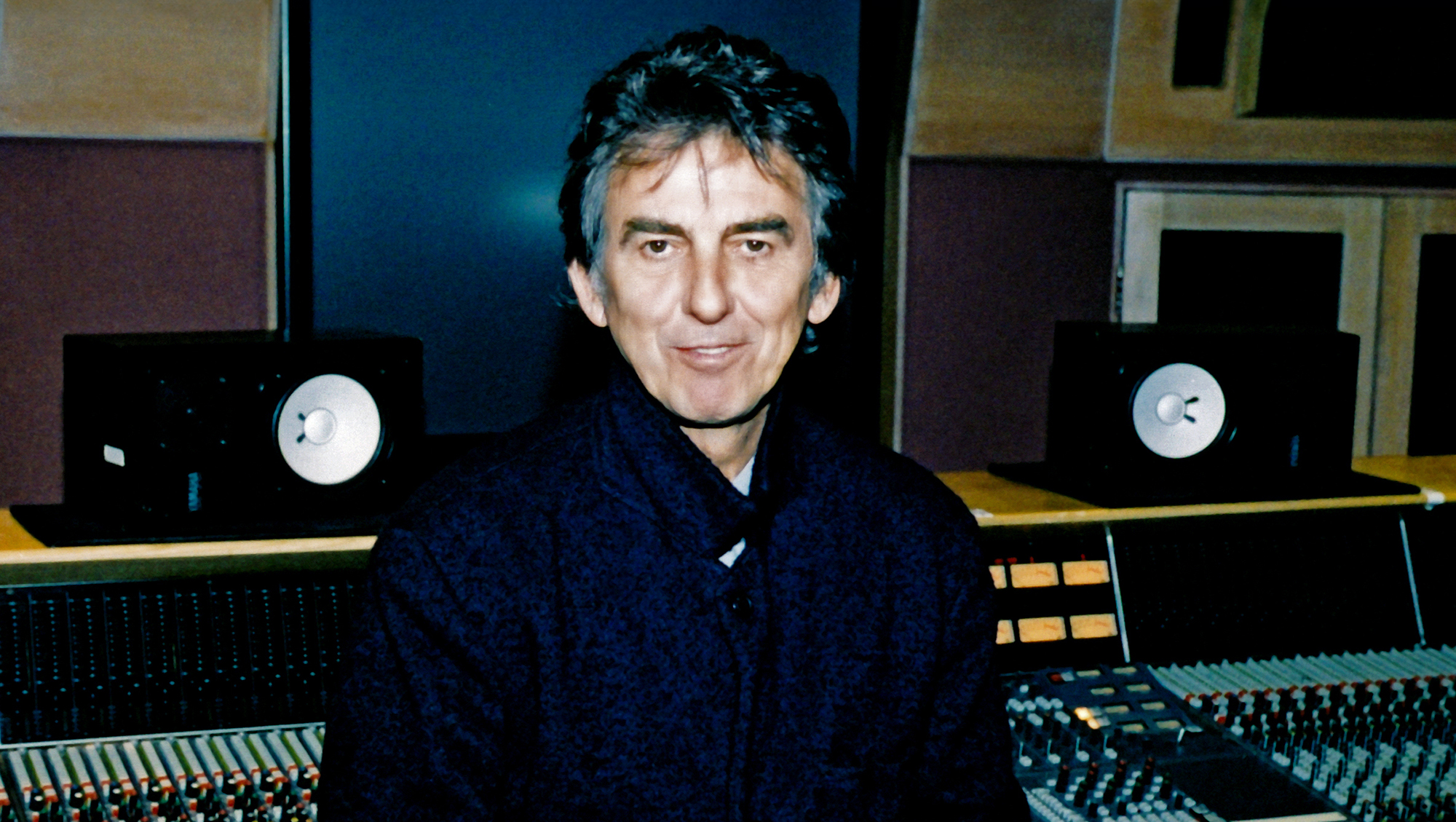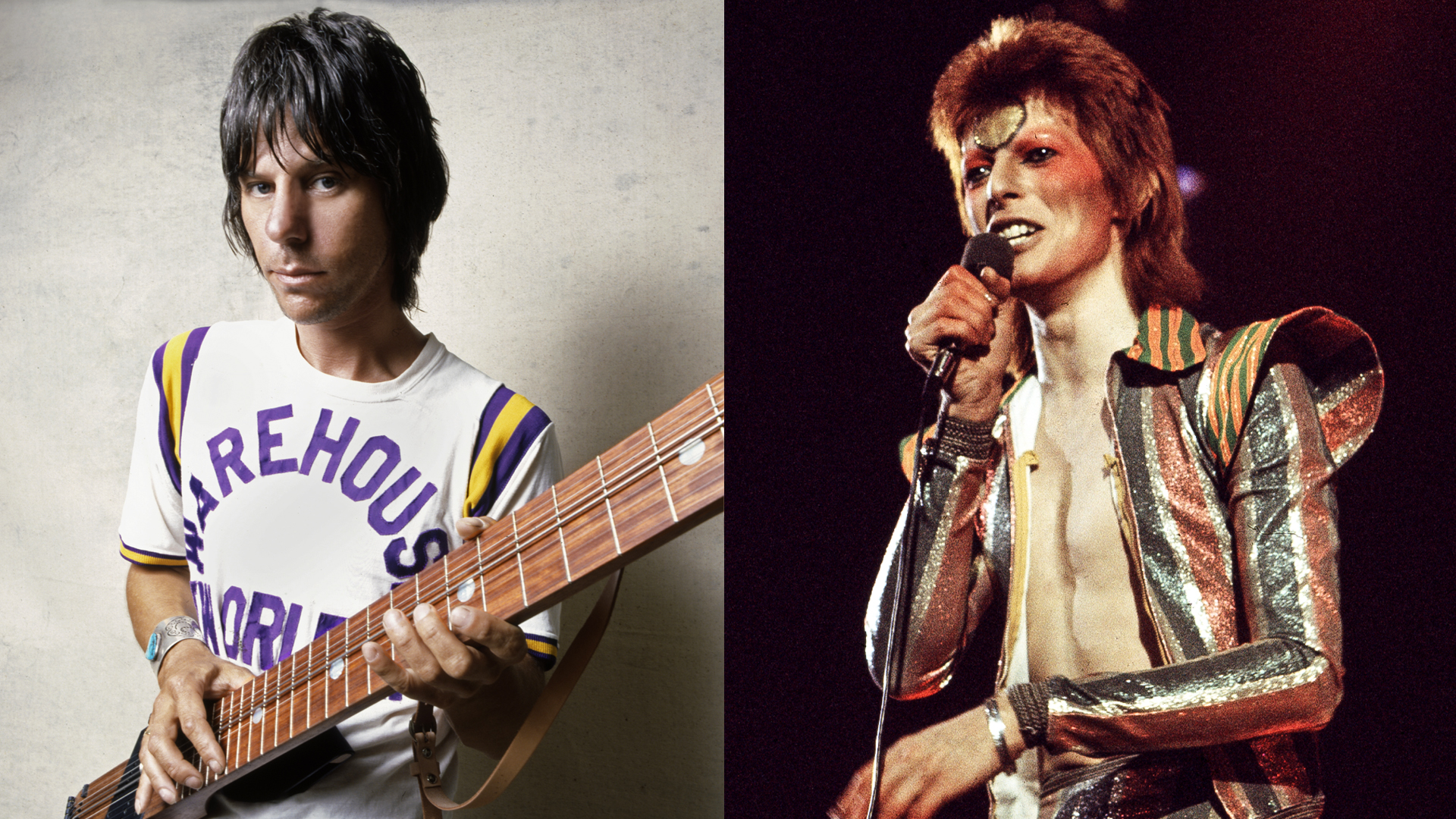“Someone said, ‘Guitar groups are on the way out, Mr. Epstein.’ That was probably the biggest error in music history.” George Harrison reveals the Beatles' early struggles in a newly discovered interview
From the group's failed auditions to the black eye he earned defending Ringo Starr, Harrison charts the band’s early years and Anthology-era reunion

With a fourth Beatles Anthology on the way, a previously unseen interview with George Harrison discussing the creation of the first in the series from 1995 has surfaced online.
The so-called philosophical Beatle discussed the breadth of the comprehensive Anthology 1 release, which featured 60 tracks, including “Free as a Bird,” the first new song from the Fab Four in 25 years. The project saw surviving members Harrison, Paul McCartney and Ringo Starr trolling the archives, right back to the group's formative days as the Quarrymen.
“Long before we came to Abbey Road, we recorded 'That'll be the Day' in a studio in Liverpool,” Harrison tells bass player Mo Foster in the clip. “It was just a place you go in and go straight onto disc, and we paid for it ourselves. We're going really from A to Z.”
The exhaustive collection, which includes outtakes and rarities from across the band's lifespan — including a live cover of Chuck Berry's “Roll Over Beethoven” — ensured the release represented every era of the band. But the further back in time the three musicians travelled, the more difficult their task became.
“We've sifted through the early tapes, but you see, a lot of the early tapes were done in mono,” he explains. “The only tapes remaining are the actual masters. All the outtakes were thrown away long before people thought we were any good.”
The band had pored through the tapes at Abbey Road, the London studio with many ties to the band. That included their audition tapes they tracked for Decca Records, when they were eying their first record deal.
“We got turned down, and they signed Brian Poole and the Tremeloes instead,” Harrison laughs. “Somebody said to Brian Epstein, ‘Guitar groups are on the way out, Mr. Epstein,’ and that was probably the biggest error in music history.”
All the latest guitar news, interviews, lessons, reviews, deals and more, direct to your inbox!
There are also stark parallels with how the Struts' record label told the band not to have too many guitars on their new Brian May-powered reworking of their biggest song. They, too, were told that guitar music was on its deathbed.

“It's a great room,” Harrison says of the studio. “At the very first session we did here, which was before Ringo was in the band, in June 1962, we recorded ‘Love Me Do’ with Pete Best.”
The band then returned in October of that year to rerecord the song again with Starr behind the kit. “But George Martin didn't know about Ringo, and he'd hired a session drummer. That's the famous story,” says Harrison, again with a chuckle. “He put out the single without Ringo playing on it! So, we're going to put out the version with Pete Best on it, because it never did come out.”
The second Abbey Road session was also memorable for all the wrong reasons. Harrison had been in a fight with some Liverpool locals who were upset about Best being replaced by Starr. Harrison recalls: “I had a black eye because people were shouting, ‘Get Ringo out. Ringo never, Pete Best forever.’
“We did so many takes of ‘Love Me Do.’ In those days, we never had light gauge strings; we used to have to have a really high action and very heavy gauge strings. After take 20, it was pretty hard on the fingers.”
Two new songs featured on the Anthology releases, with both “Free as a Bird” and “Real Love” coming from John Lennon demos handed to the group by his widow, Yoko Ono.. It was the first time the trio had worked on a song together since 1970, and McCartney believes that John Lennon’s spirit often made itself known during the sessions on several occasions.
For Beatles fans, new music a quarter of a century after the heartbreak of their breakup was headline news. For Harrison, the biggest takeaway from those sessions was that water was passing under the trio’s proverbial bridge.
“The thing that's the most pleasing is that we're all friendly again,” he says. “I mean, we had some turbulent years in the meantime. It's just fun to have your old friends back again.”
John Lennon, however, felt the individual members flourished after the band broke up, even if it took several attempts for McCartney to get his solo career off the ground.
A freelance writer with a penchant for music that gets weird, Phil is a regular contributor to Prog, Guitar World, and Total Guitar magazines and is especially keen on shining a light on unknown artists. Outside of the journalism realm, you can find him writing angular riffs in progressive metal band, Prognosis, in which he slings an 8-string Strandberg Boden Original, churning that low string through a variety of tunings. He's also a published author and is currently penning his debut novel which chucks fantasy, mythology and humanity into a great big melting pot.


